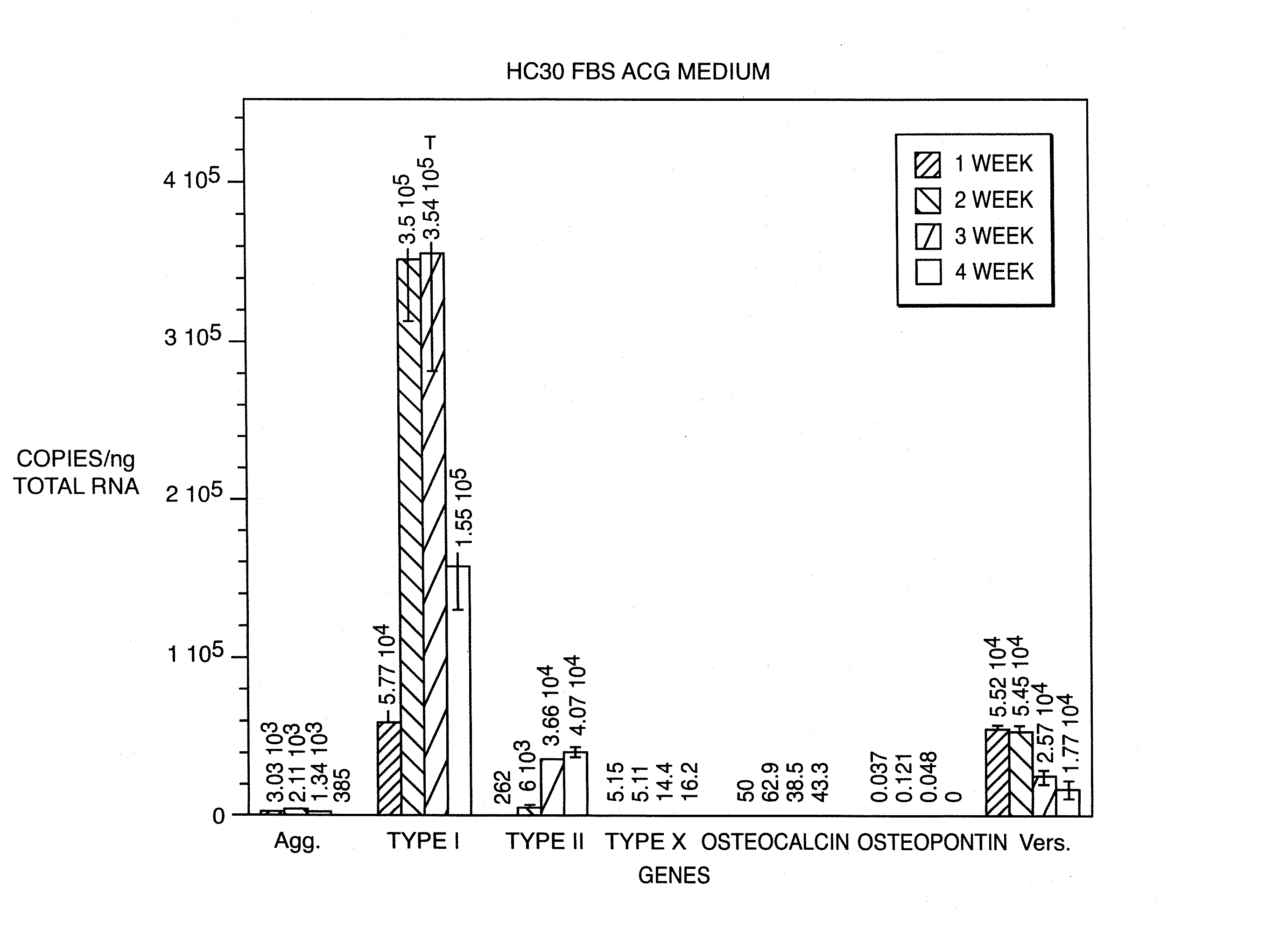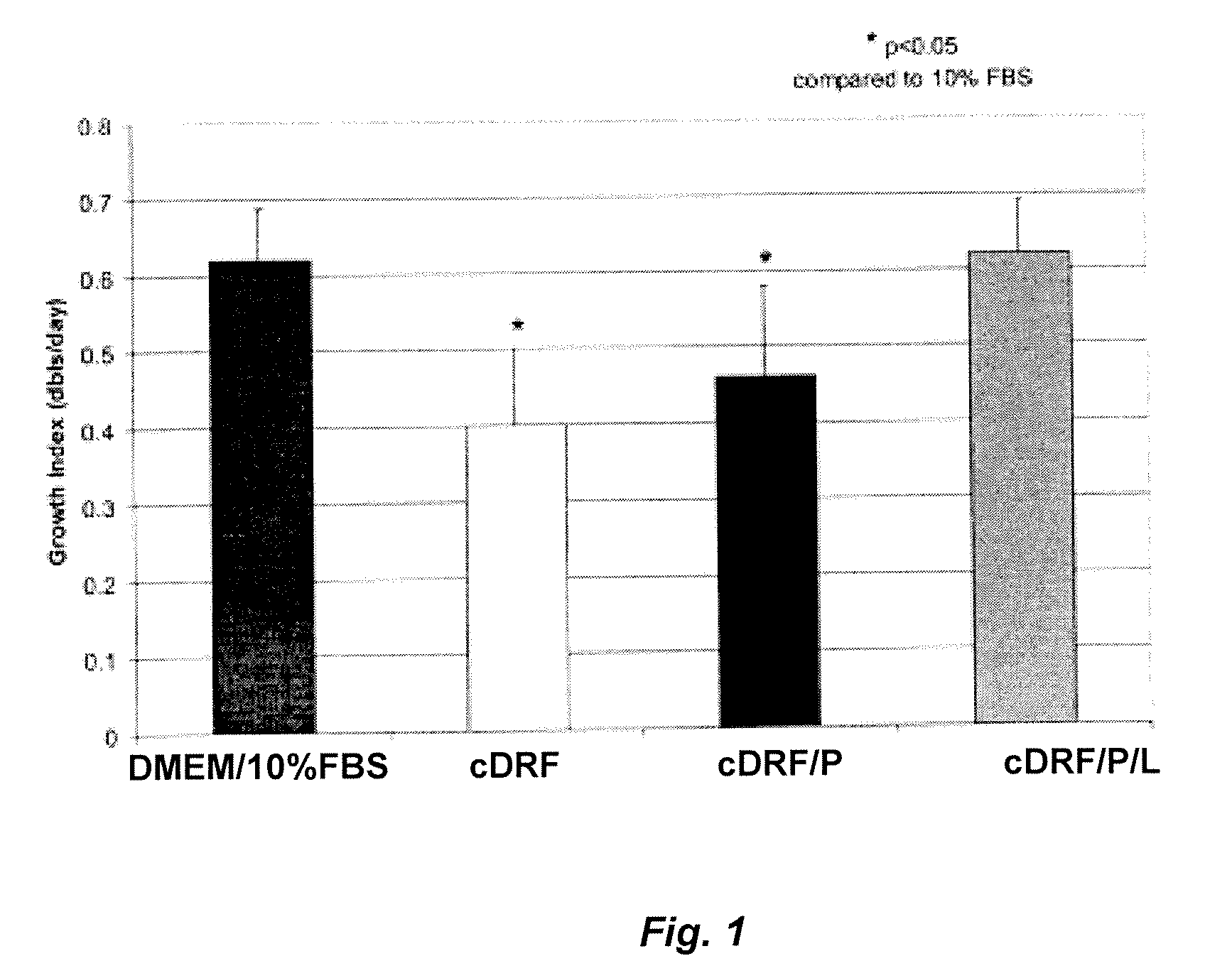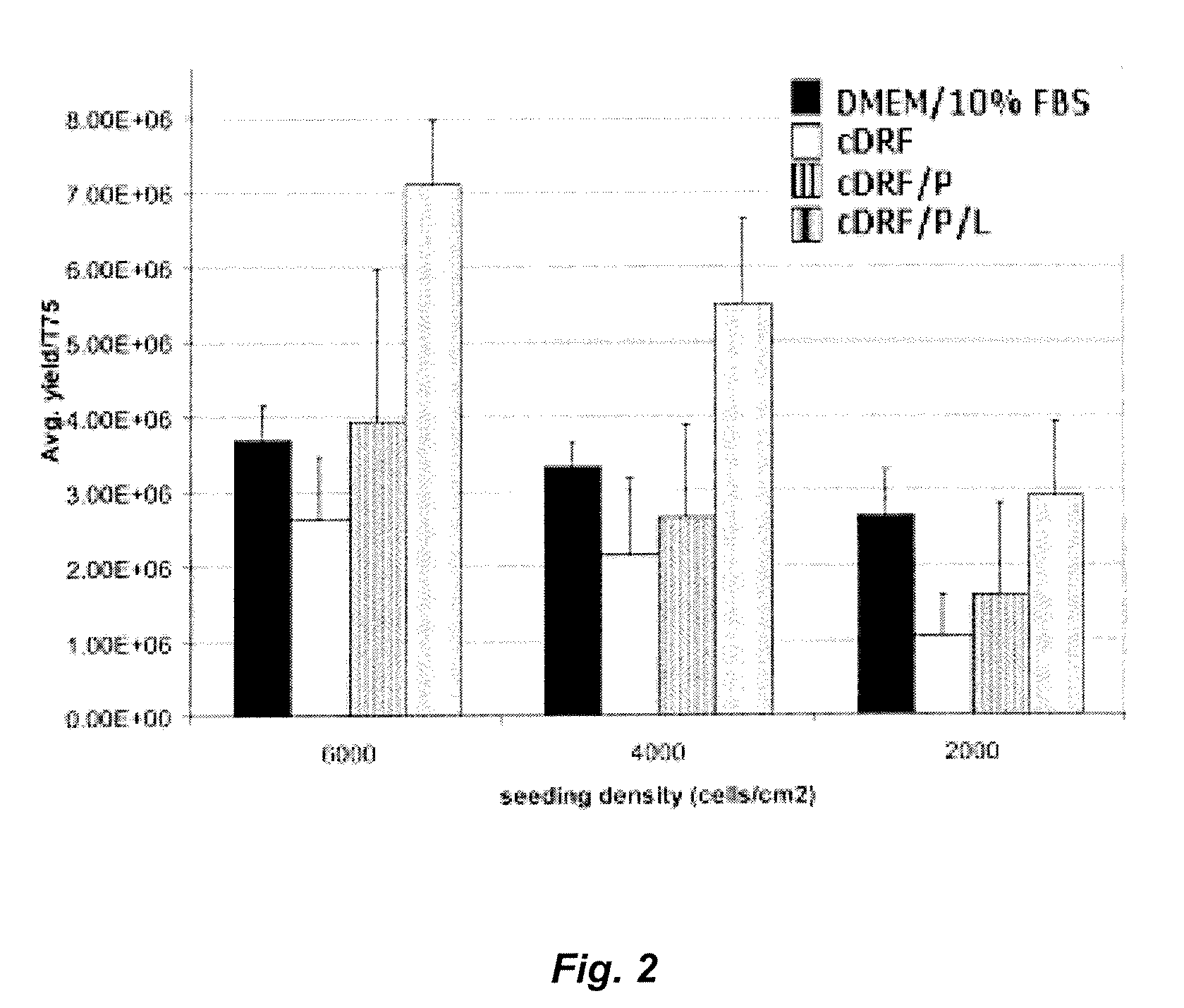Serum-free media for chondrocytes and methods of use thereof
a chondrocyte and serum-free technology, applied in the field of cell and tissue culture, can solve the problems of phenotypical instability, difficult standardization, and serious physical debilitation, and achieve the effect of safe, effective and inexpensive culture medium
- Summary
- Abstract
- Description
- Claims
- Application Information
AI Technical Summary
Benefits of technology
Problems solved by technology
Method used
Image
Examples
example 1
[0052] Human articular cartilage biopsy samples from donors of 16-51 years of age were trimmed of extraneous material, minced and subjected to enzymatic digestion using 0.25% protease from Bascilus Thermopropolipycus for 1-2 hrs followed by an overnight digestion in 0.1% collagenase / DMEM at 37° C. Isolated articular chondrocytes were washed twice in DMEM containing 10% human serum albumin (DMEM / 10% HSA). The isolated primary human articular chondrocytes (HAC) were seeded at 5,000-6,000 cells / cm2 in T75 flasks using the following separate media conditions: [0053] 1) DMEM / 10% FBS (DMEM supplemented with 10% fetal bovine serum and 100 μg / ml gentamycin); [0054] 2) cDRF (as defined in Table 3); [0055] 3) cDRF / P (cDRF supplemented with 10 ng / ml PDGF); [0056] 4) cDRF / L (cDRF supplemented with 5 μl / ml CDLM (as defined in Table 4)); and [0057] 5) cDRF / P / L (cDRF supplemented with 10 ng / ml PDGF and 5 μl / ml CDLM)
[0058] Two flasks were used per each condition. At the end of each passage, nearly...
example 2
[0059] Hyaline cartilage biopsy samples collected from multiple donors were used to compare cell yields as a function of the passage number for chondrocytes cultured in DMEM / 10% FBS or in a completely defined serum-free medium according to this invention. Samples were collected and treated as described in Example 1. Isolated chondrocytes were washed twice in DMEM containing 10% human serum albumin (DMEM / 10% HSA). The isolated primary human articular chodrocytes (HAC) were seeded at 6,000 cells / cm2 in T75 flasks using the following media conditions: [0060] 1) DMEM / 10% FBS (DMEM supplemented with 10% fetal bovine serum and 100 μg / ml gentamycin); and [0061] 2) cDRF / P / L (cDRF supplemented with 10 ng / ml PDGF and 5 μl / ml CDLM)
[0062] At the end of each passage nearly confluent cells were harvested by trypsinization, counted, washed in DMEM / 10% HSA and reseeded at 6,000 cells / cm2 in respective media. A comparison of cell yields at the end of each passage for chondrocytes propagated in DMEM...
example 3
[0063] In this experiment, human articular chondrocytes from three donors, ages 16, 22, and 55, were isolated and treated as described in Example 1. Chondrocytes were seeded at 6,000 cells / cm2 in T75 flasks and grown in DMEM / 10% FBS until near confluence. The cells were then harvested by trypsinization, washed in seeding media, and immediately frozen in 10% DMSO / 40% HSA / 50% DMEM. For the second passage, ampules of frozen cells were thawed out, rinsed in DMEM / 10% HSA and reseeded at 3,000-4,000 cells / cm2 in the following media: 1) DMEM / 10% FBS; 2) cDRF; 3) cDRF / P; and 4) cDRF / P / L (see Example 1 for the description of the media). Two flasks were used per each set of media conditions. At the end of each passage nearly confluent cells were harvested by trypsinization, washed in DMEM / 10% HSA and reseeded in the corresponding media. At the end of the third passage, cells were harvested and counted. Growth index expressed as a number of doublings per day at the end of a seven-day period wa...
PUM
| Property | Measurement | Unit |
|---|---|---|
| concentration | aaaaa | aaaaa |
| concentration | aaaaa | aaaaa |
| concentration | aaaaa | aaaaa |
Abstract
Description
Claims
Application Information
 Login to View More
Login to View More - R&D
- Intellectual Property
- Life Sciences
- Materials
- Tech Scout
- Unparalleled Data Quality
- Higher Quality Content
- 60% Fewer Hallucinations
Browse by: Latest US Patents, China's latest patents, Technical Efficacy Thesaurus, Application Domain, Technology Topic, Popular Technical Reports.
© 2025 PatSnap. All rights reserved.Legal|Privacy policy|Modern Slavery Act Transparency Statement|Sitemap|About US| Contact US: help@patsnap.com



